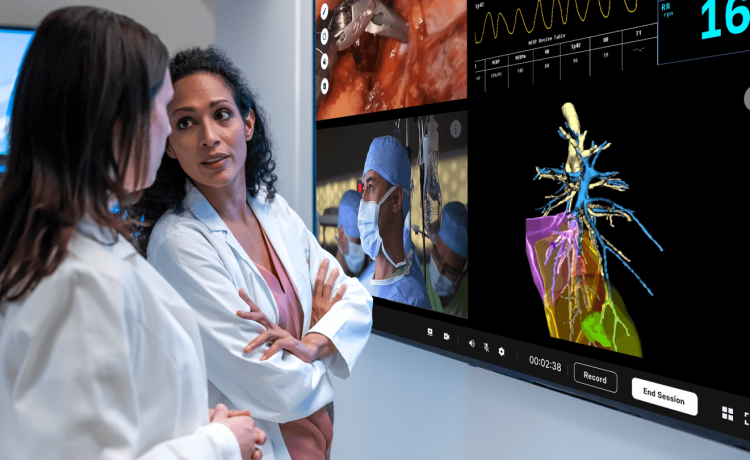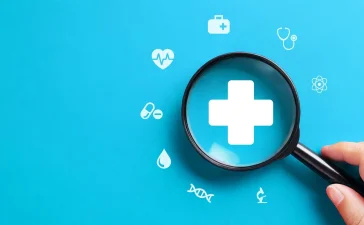The healthcare landscape is experiencing a profound transformation. Advances in technology, medicine, and patient-centered care are reshaping how diseases are diagnosed, treated, and prevented. With an increasing global population, rising life expectancy, and a surge in chronic conditions, healthcare systems face both challenges and opportunities. The integration of digital solutions, personalized medicine, and preventive strategies is redefining modern healthcare.
This article explores the latest trends, innovations, and challenges in health and medicine, emphasizing their impact on patients, practitioners, and society.
Precision Medicine: The New Era of Personalized Care
Precision medicine, also called personalized medicine, is a revolutionary approach that tailors treatment to an individual’s genetic profile, environment, and lifestyle. Unlike traditional methods, which rely on generalized treatment protocols, precision medicine focuses on individualized strategies to improve outcomes.
Key benefits include:
-
Targeted treatments: Therapies are designed to match a patient’s genetic makeup, increasing effectiveness and reducing side effects.
-
Early detection: Biomarkers and genetic testing identify predispositions to diseases, enabling proactive interventions.
-
Optimized patient outcomes: Chronic diseases, cancer, and rare genetic disorders can be managed more effectively through customized approaches.
Advancements in genomics, bioinformatics, and AI-driven diagnostics are making precision medicine more accessible, promising a future of highly personalized healthcare.

Telemedicine and Digital Health
The COVID-19 pandemic accelerated the adoption of telemedicine, turning virtual consultations into a core component of healthcare. Telehealth improves accessibility, reduces travel time, and enhances continuity of care, especially for patients in remote areas or those with mobility challenges.
Digital health trends include:
-
Virtual consultations for routine checkups, follow-ups, and specialist care.
-
Remote patient monitoring using wearables to track heart rate, glucose levels, and blood pressure.
-
Mobile health apps for chronic disease management, medication adherence, and mental health support.
-
AI-assisted diagnostics for analyzing medical images, predicting outcomes, and guiding treatment plans.
Telemedicine also fosters patient engagement, promotes preventive care, and reduces the strain on healthcare facilities.
Innovations in Biotechnology
Biotechnology is driving transformative breakthroughs in medicine. From gene editing to regenerative therapies, these advancements are creating new possibilities for treating previously incurable conditions.
Notable developments include:
-
CRISPR-Cas9 gene editing: Enables precise modifications in DNA to treat genetic disorders.
-
Stem cell therapy: Regenerates damaged tissues and supports recovery from injuries and degenerative diseases.
-
Immunotherapy: Harnesses the body’s immune system to combat cancers and autoimmune disorders.
-
3D bioprinting: Produces tissues and organs for research, drug testing, and potential transplants.
These innovations are shifting healthcare from symptomatic treatment toward curative and regenerative solutions.
Preventive Healthcare: Reducing Disease Burden
Preventive healthcare emphasizes early detection and proactive interventions to maintain health and prevent disease. By focusing on prevention, healthcare systems can improve quality of life, reduce costs, and minimize chronic disease prevalence.
Preventive strategies include:
-
Routine screenings for cancer, cardiovascular disease, diabetes, and other conditions.
-
Vaccination programs to prevent infectious diseases.
-
Lifestyle interventions promoting nutrition, exercise, and mental wellness.
-
Public awareness campaigns educating communities about risk factors and healthy habits.
Preventive healthcare is essential for building resilient healthcare systems and improving population health.
Mental Health: An Integral Component
Mental health is increasingly recognized as a crucial aspect of overall well-being. Conditions such as anxiety, depression, and stress-related disorders affect millions worldwide and can significantly impact physical health.
Recent developments in mental health care include:
-
Teletherapy and online counseling, providing accessible support.
-
Digital therapeutics, such as apps for managing anxiety, insomnia, or addiction.
-
Integration with primary care, ensuring mental and physical health are addressed together.
-
Mindfulness and stress reduction programs to enhance emotional resilience.
Promoting mental health awareness and integrating care into broader healthcare systems improves outcomes and supports holistic well-being.
Artificial Intelligence in Healthcare
Artificial Intelligence (AI) is transforming diagnostics, treatment, and research. AI algorithms analyze large datasets to identify patterns, predict outcomes, and support clinical decision-making.
Applications include:
-
Medical imaging analysis for faster and more accurate disease detection.
-
Predictive analytics to identify high-risk patients and anticipate disease progression.
-
Drug discovery and development, reducing the time and cost to bring new therapies to market.
-
Personalized treatment planning using patient data and predictive models.
AI not only enhances efficiency and accuracy but also allows healthcare providers to deliver more proactive and personalized care.
Challenges in Modern Healthcare
Despite technological advances, healthcare systems face ongoing challenges:
-
Rising costs of advanced treatments and technology, limiting accessibility.
-
Healthcare disparities affecting rural, low-income, and marginalized populations.
-
Workforce shortages, particularly among specialized healthcare providers.
-
Data privacy and cybersecurity concerns related to digital health platforms.
-
Managing chronic disease prevalence, which continues to grow globally.
Addressing these challenges requires strategic planning, investment in infrastructure, and equitable policies that prioritize patient access and care quality.
Public Health and Education
Public health initiatives and education are critical for improving healthcare outcomes. Educating individuals about preventive care, healthy lifestyles, and available medical services empowers communities to take proactive steps toward wellness.
Effective strategies include:
-
School programs teaching nutrition, hygiene, and mental health.
-
Community outreach campaigns for vaccinations, screenings, and wellness programs.
-
Health literacy initiatives to help patients understand medications, treatments, and health decisions.
-
Promoting lifestyle changes to prevent obesity, smoking, and chronic disease.
Well-informed populations reduce healthcare burdens and foster healthier communities.
Future Trends in Health and Medicine
The future of healthcare is patient-centered, technologically advanced, and preventive. Emerging trends include:
-
Widespread adoption of precision medicine for personalized treatments.
-
Integration of AI and big data for diagnostics and care planning.
-
Expansion of telehealth services, particularly for chronic disease management.
-
Sustainable healthcare practices reducing environmental impact.
-
Holistic care models combining physical, mental, and social health.
These trends indicate a shift toward a more efficient, inclusive, and proactive healthcare system.

Conclusion
Health and medicine are undergoing rapid evolution, driven by technology, personalized care, and preventive strategies. Precision medicine, digital health, biotechnology, AI, and mental health integration are transforming patient outcomes and healthcare delivery.
Challenges such as rising costs, workforce shortages, and healthcare disparities remain, but innovation and education offer solutions. By combining technological advancements with patient-centered, preventative approaches, modern healthcare systems can improve quality of life, reduce disease burden, and ensure equitable access to care for all.
The future of health and medicine lies in innovation, collaboration, and a commitment to holistic well-being, creating a world where healthcare is efficient, accessible, and responsive to individual and societal needs.





